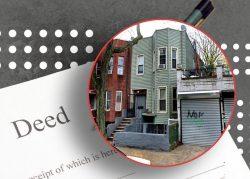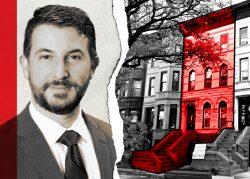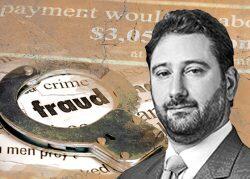Despite a guilty plea and slew of allegations over a portfolio built on deed theft, a former Brooklyn attorney appears to still be profiting at buildings disputed by prosecutors and homeowners — and he’s getting an assist from the city.
Sanford Solny profits from a portfolio of buildings acquired via disputed means, collecting rent from tenants in 19 properties where he was accused of defrauding the owner, according to court filings and city records reported by the New York Times.
City agencies are contributing to Solny’s profit by subsidizing the rent at some of the properties, including through affordable-housing vouchers applied for by tenants.
Solny has been accused of compiling his portfolio by offering to come to the rescue of homeowners facing foreclosure by arranging to pay off mortgages while covertly having them sign over buildings at cheap prices. The mortgage then doesn’t get paid, sticking the homeowner with their debt, but without their property.
Solny and his companies have been linked to taking ownership of roughly 140 properties over a decade, according to the report. The former owners of more than a quarter of those properties claim to be victims of deed theft.
In 2016, Solny and his associates were charged with crimes related to deed theft regarding 10 homes in Queens. He pleaded guilty to a lesser charge, sentenced to up to five years of probation. He also paid a fine and returned rent, while five deeds were voided.
Read more



In 2020, Solny was indicted for carrying out an $8 million deed theft scheme in Brooklyn, accused of stealing deeds to eight properties in foreclosure by tricking victims into signing away their homes. Solny’s probation officer has recommended jail time for violating his Queens plea, but the case remains ongoing.
Despite running into legal trouble, Solny appears to have kept at it. The investigation uncovered at least one questionable transaction in 2019, years after the plea deal in Queens.
“The fact that these clients would lose their homes had been a foregone conclusion long before they ever met Mr. Solny,” a lawyer for Solny said in a statement to the Times. “When they sought his assistance with managing that unfortunate and complex reality, these clients executed documents that clearly conveyed their properties to Mr. Solny.”
Deed theft is notoriously hard to prosecute, as criminal intent must be shown; defendants can claim actions were business deals gone bad. Civil lawsuits are often victims’ best chance at reclaiming the title, but the prevalence of alleged thefts in poorer neighborhoods create an uphill battle for victims who can’t afford representation.
— Holden Walter-Warner
